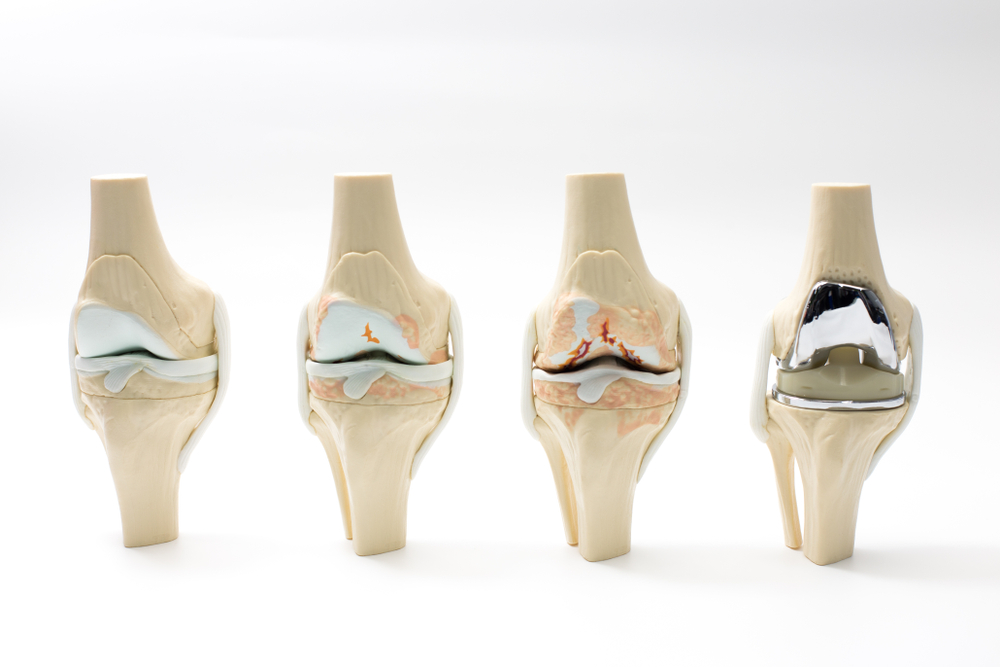Are you confused about whether Total Knee Replacement or Microplasty is the right treatment for your knee pain? At Synergy Hospital, Gota, we understand that every patient’s knee condition is unique—and so are their treatment needs. With advancements in orthopedic care, patients now have multiple options ranging from minimally invasive Microplasty to fully reconstructive Total Knee Replacement. In this blog, we help you understand the key differences, benefits, recovery timelines, and who is the ideal candidate for each procedure. Our expert orthopedic team at Synergy Hospital is committed to guiding you toward a treatment plan that ensures long-term mobility, comfort, and improved quality of life.


Knee pain and mobility issues are some of the most common challenges faced by individuals as they age. The knee, being one of the most active and weight-bearing joints in the body, is susceptible to wear and tear over time. This is particularly evident in those suffering from osteoarthritis or other degenerative joint conditions, which can cause persistent discomfort, swelling, and stiffness.
Two key options often discussed are Total Knee Replacement (TKR) and Microplasty (also known as partial knee replacement or unicompartmental knee replacement). But which one is right for you? Let’s explore the differences, benefits, and considerations of both procedures.

TKR is usually recommended for patients with advanced knee arthritis, where all compartments of the knee are damaged. The surgery can provide long-lasting relief from pain and significantly improve mobility and quality of life.
TKR addresses damage in all parts of the knee joint, making it suitable for severe cases of arthritis.
Modern prosthetics can last up to 20-25 years, making it a durable solution.
TKR can restore nearly full range of motion and improve overall knee function.
For patients with widespread arthritis affecting the entire knee, TKR is the best option to regain normal movement.
However, TKR is a major surgery and requires proper rehabilitation and Physiotherapy to return to normal day to day Life.
Microplasty, or unicompartmental knee replacement, is a less invasive alternative to TKR. In this procedure, only the damaged part of the knee is replaced, leaving the healthy portions of the joint intact. Microplasty is suitable for patients with localized knee damage, usually affecting just one compartment of the knee—either the inner (medial), outer (lateral). More commonly the inner ( Medial ) Joint compartment.
Because only part of the knee is replaced, the surgery is less invasive than TKR.
Since Microplasty retains much of the natural knee, patients often report the joint feels more "normal" after surgery.
The procedure requires a smaller incision, which leads to less scarring and pain after surgery.
However, Microplasty is not suitable for everyone. It is most effective for patients with damage limited to one area of the knee. If arthritis is widespread, affecting more than one compartment, a total knee replacement is more recommended. So Patient selection remains the key for the success of the surgery.
TKR is ideal for patients with widespread arthritis affecting multiple compartments of the knee.
Microplasty is suitable for only with patients with localized damage in just one compartment.
There is no major difference in the recovery time as in both surgeries most of the patient starts walking from the very next day.
TKR is a more invasive procedure since the entire knee joint is replaced.
Microplasty is less invasive, preserving healthy tissue and requiring a smaller incision.
TKR prosthetics can last up to 20-25 years, making it a long-term solution for younger, active patients with severe arthritis.
Microplasty also offers durability, though the longevity may vary from 10-15 years depending on the patient’s activity level. May require revision with Total Knee Replacement.
Natural Feel:TKR replaces the entire knee joint, which can feel different than a natural knee, although most patients report significant improvement in mobility and pain relief.
Microplasty often allows patients to retain more of the natural feel and function of their knee, as much of the original structure is left intact.
The decision between Total Knee Replacement and Microplasty depends on several factors, including the extent of knee damage, the patient’s overall Age,health,weight and built, activity level, and personal preferences. For patients with severe, widespread knee arthritis, Total Knee Replacement is often the most effective long-term solution. It provides comprehensive relief from pain and restores mobility across all compartments of the knee.
On the other hand, for patients with more localized damage, Microplasty offers a less invasive option and a more natural feel in the joint. But it is important that patient is counselled in details regarding the selection criteria. However, it is important to note that if arthritis spreads to other parts of the knee after Microplasty, further surgery, possibly TKR, may be needed down the line.
Both Total Knee Replacement and Microplasty are highly effective surgical options for relieving knee pain and restoring function. The key is understanding the extent of the damage in your knee and consulting with a qualified orthopedic surgeon to determine the best approach for your individual condition. At Synergy Hospital, Dr. Rachit Sheth and his team are experts in both procedures, offering personalized care to help you get back on your feet and enjoy a pain-free life.
For more information on knee replacement options, schedule a consultation with Dr. Rachit Sheth at Synergy Hospital, Gota.